At least 13 civilians were killed in an air raid as the Nigerian military repelled an assault in Borno state, residents and a security source told AFP on Sunday.
Multiple inhabitants of Gajigana village in Nganzai Local Government Area, around 45 km (28 miles) north of state capital Maiduguri, told AFP a military jet on Tuesday, July 2 targeted fighters believed to be from the Islamic State West Africa Province faction of Boko Haram after they attacked the nearby military base. ISIS has not yet claimed ISWAP fighters carried out the attack.
The Daily Post on Wednesday reported a fighter jet had been deployed to support ground troops.
The Nigerian Air Force, however, said it had no reports of civilian casualties.
Raid on Gajigana military base
A military officer said ISWAP fighters in nine technicals – pickup trucks fitted with machine guns – attacked Forward Operation Base Gajigana around 6 p.m., engaging troops in a gun battle.
The Nation reported that 212 Tank Battalion was deployed at the base.
The insurgents were subdued with the support of the fighter jet which destroyed six trucks and captured two others, the officer said.
On Thursday the military showed journalists the seized vehicles during a tour of the base in Gajigana – also spelled Gajiganna – an AFP reporter at the event said.
Some buildings in the base had been burned.
The commander of Sector 1, Operation Lafiya Dole, Brigadier-General Bulama Biu said ISWAP fighters “tried to infiltrate” the facility but met “stiff resistance” from troops.
Biu said the attack was “repelled” with air support in which “many insurgents were killed.”
Two technicals and high calibre ammunition were recovered, Punch reported Biu as saying.
He made no reference to civilian casualties.
Civilians killed and injured in Gajigana airstrike
Fleeing residents were caught up in the bombing, residents said on condition of anonymity over fears for their personal safety.
“We lost 13 people in the bombardment as many people tried to escape the fighting between the insurgents and troops,” a resident said. “Many people were injured in the attack.”
The military jet was deployed around 7:30 p.m. to support troops in the base who were trying to fight off the militants, residents said.
“Many residents were too scared to remain in their homes and ran out to escape from the village as the fighting raged between the troops and the insurgents,” a second resident said.
“They were mistaken for the attackers by the jet which fired on them, killing 13 and injuring many,” he said.
Nigerian Air Force denies reports of civilian casualties in Gajigana
Nigerian Air Force spokesperson Air Commodore Ibikunle Daramola told AFP “there has been no such report” of civilian casualties from forces on the ground.
“What I can assure you is that the Nigerian Air Force responded to provide close air support to our troops that were under attack by the Boko Haram terrorists and everything that was done was in coordination with the army,” Daramola said.
But a security source in Maiduguri confirmed the incident to AFP and blamed residents for flouting military orders to remain indoors.
“The villagers were warned not to step out of their homes before the terrorists attacked because there was intelligence they were planning an attack,” said the source.
“While fighting was going on some of the villagers started running away from their houses at the time the fighter jet was bombarding the terrorists,” said the security source who asked not to be named for fear of sanction.
“I learnt between 13 and 16 people from the village died and some others were wounded, he said.
ISWAP attacks north of Maiduguri
Since July last year, ISWAP has intensified attacks on military targets, killing dozens of soldiers and overrunning bases, mainly further east in the Lake Chad area of Nigeria, Chad and Niger where it is the dominant insurgent group.
But the latest raid on Gajigana is the latest incident in a series of attacks on military bases carried out by ISWAP fighters north of Maiduguri in recent months.
On May 10, ISWAP fighters attacked Forward Operation Base Gajigana. ISIS claimed 11 soldiers were killed and others injured and the base was burned. The Nigerian Army later said that only two troops were injured in the attack, and that a number of militants were “exterminated.”
Military bases in Gajiram, Kareto, Gubio and Magumeri have also been attacked.
The Nigerian military seldom comments on the ongoing counter-insurgency operations, and tends to downplay the insurgents’ effectiveness, rarely acknowledging engagements and seemingly understating military casualties and equipment losses.
In one case, after ISWAP fighters in April attacked a Nigerian military base in Sabon Gari near Biu, around 135 km southwest of Maiduguri, the Nigerian Army described reporting on the incident as “unsubstantiated” and “fake,” saying it was the work of “Boko Haram sympathizers.”
A month later, ISWAP fighters ambushed a convoy that was transporting civilians from Sabon Gari to Damboa. Again the Nigerian Army described media reports as “fake news” and denied there had been any attacks on military personnel in Borno state.
ISWAP in Nigeria
The jihadist group known as Boko Haram began its bloody insurgency in northeastern Nigeria in 2009, but it has since spread into neighboring Niger, Chad and Cameroon, prompting a regional military response. More than 27,000 people have been killed and two million others displaced, sparking a dire humanitarian crisis in the region. The U.S. assesses that Boko Haram and ISWAP have been responsible for over 35,000 deaths since 2011.
Boko Haram split into two factions in mid-2016. One, led by long-time leader Abubakar Shekau, is notorious for suicide bombings and indiscriminate killings of civilians. Shekau pledged allegiance to ISIS leader Abu Bakr Al-Baghdadi in March 2015, but ISIS central only gives formal backing to the other faction, which it calls Islamic State West Africa Province.
The ISWAP faction, which largely focuses on attacking military and government targets, was led by Abu Mus’ab Al-Barnawi, but in March, audio recordings revealed that ISIS appointed Abu Abdullah Idris bin Umar, also known as Ibn Umar al-Barnawi, as leader. Despite releasing several videos featuring ISWAP since, ISIS has not yet made a public statement confirming the change.
Since May, Islamic State has attributed insurgent activities in the Mali-Burkina Faso-Niger tri-border area to its West Africa Province affiliate, rather than to what was previously known as Islamic State in the Greater Sahara. In a June 15 ISIS propaganda video, ISWAP militants purportedly in Nigeria, Mali and Burkina Faso were shown reaffirming their pledge of allegiance to ISIS leader Baghdadi.
The regional counter-insurgency Multinational Joint Task Force which comprises personnel from Chad, Cameroon, Niger, and Nigeria, launched Operation Yancin Tafki on February 21 to battle the insurgents. It has said the cross-border operation is aimed at “making islands and other settlements in Lake Chad untenable for Boko Haram Terrorists.”
With reporting from AFP


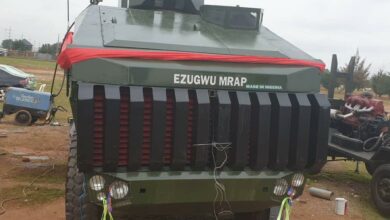
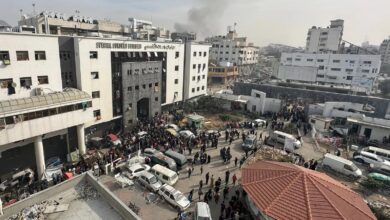

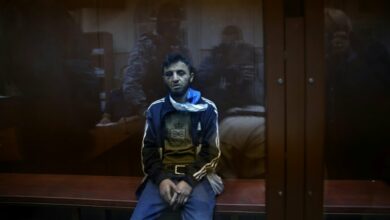
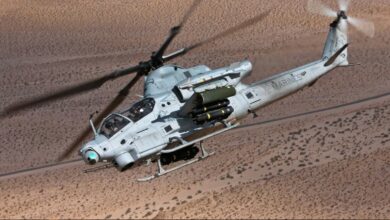
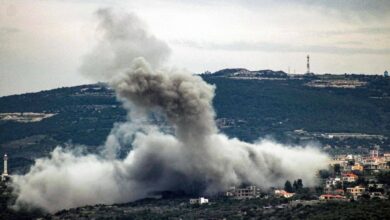
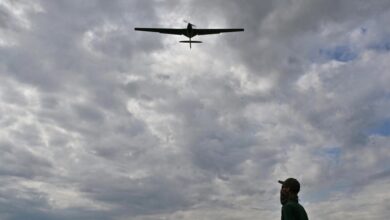

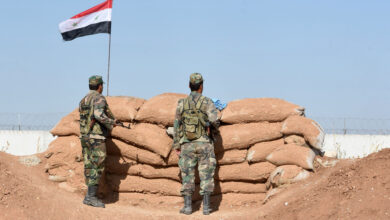
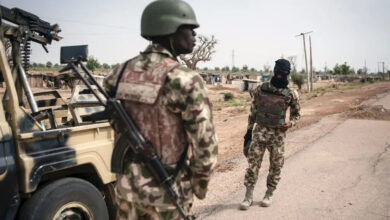
3 Comments